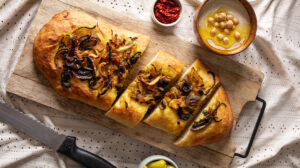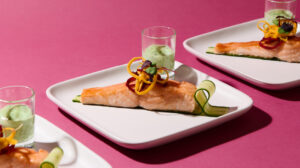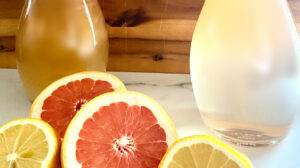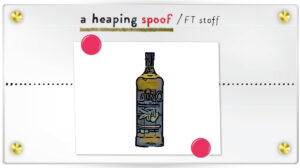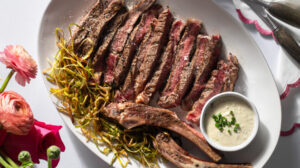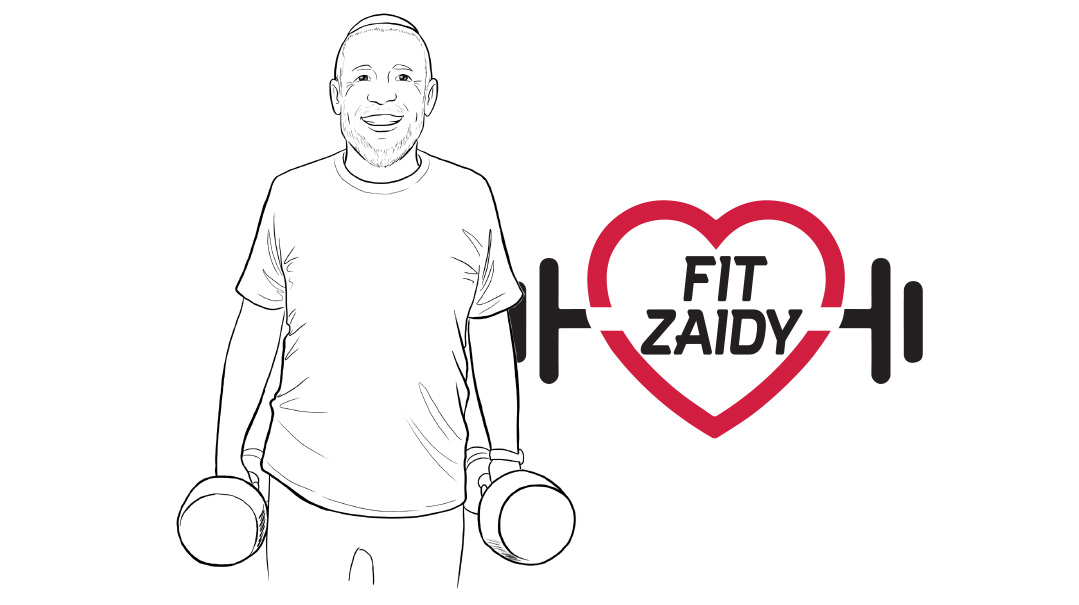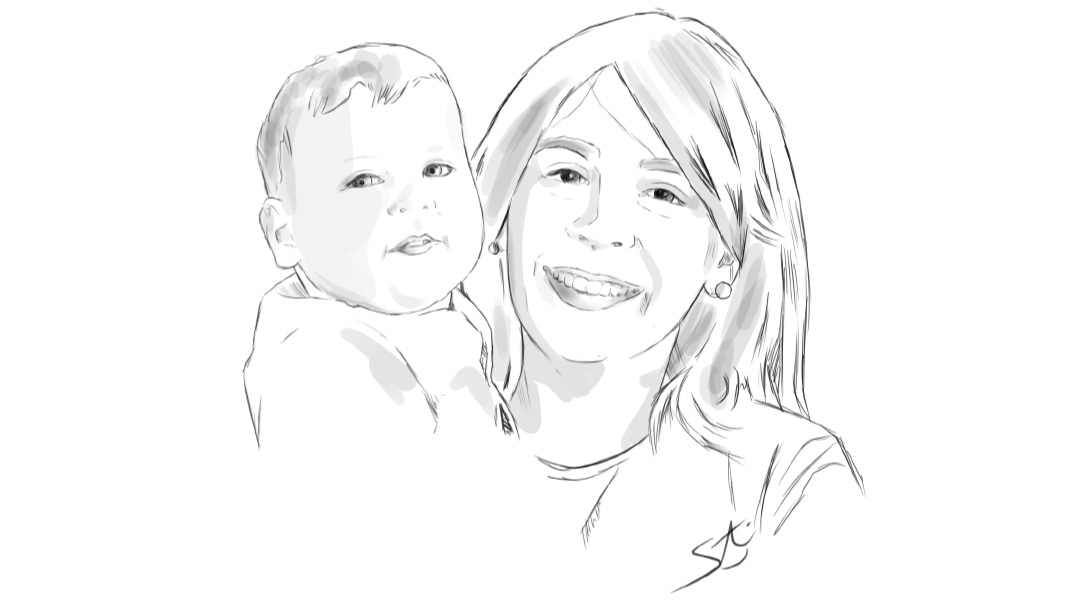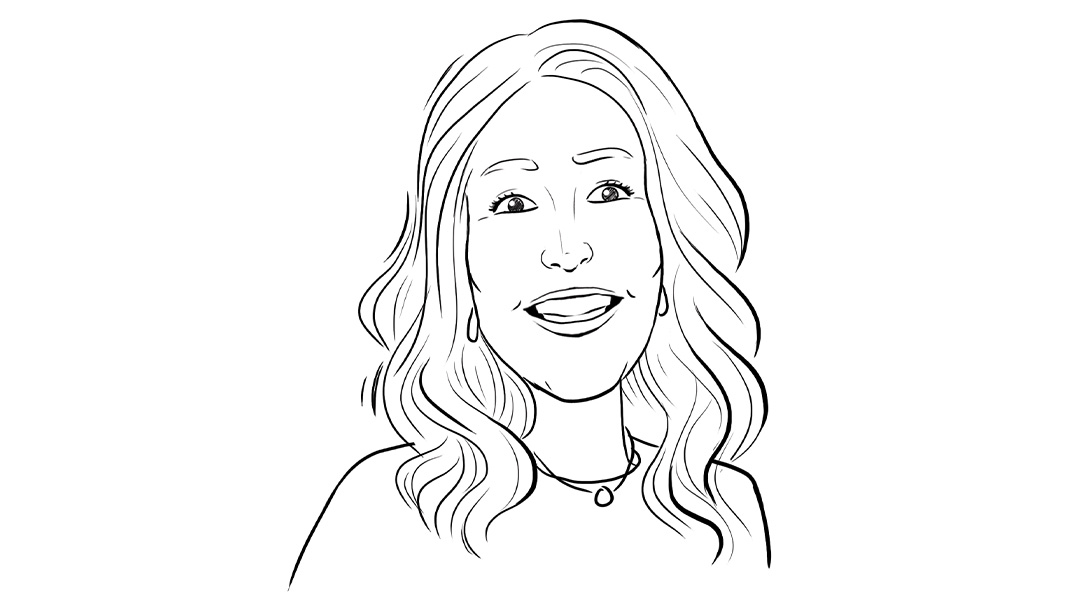Ariel Bensoussan
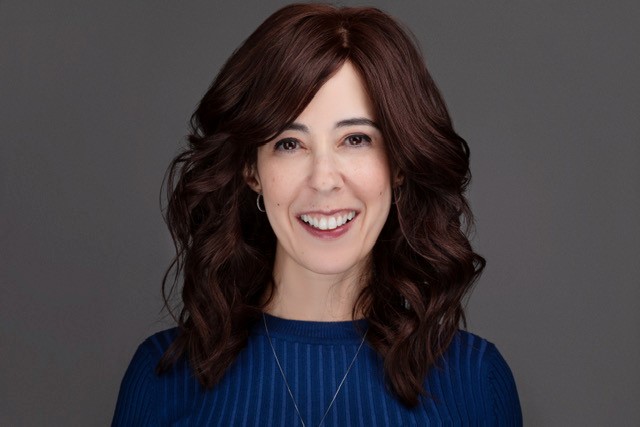
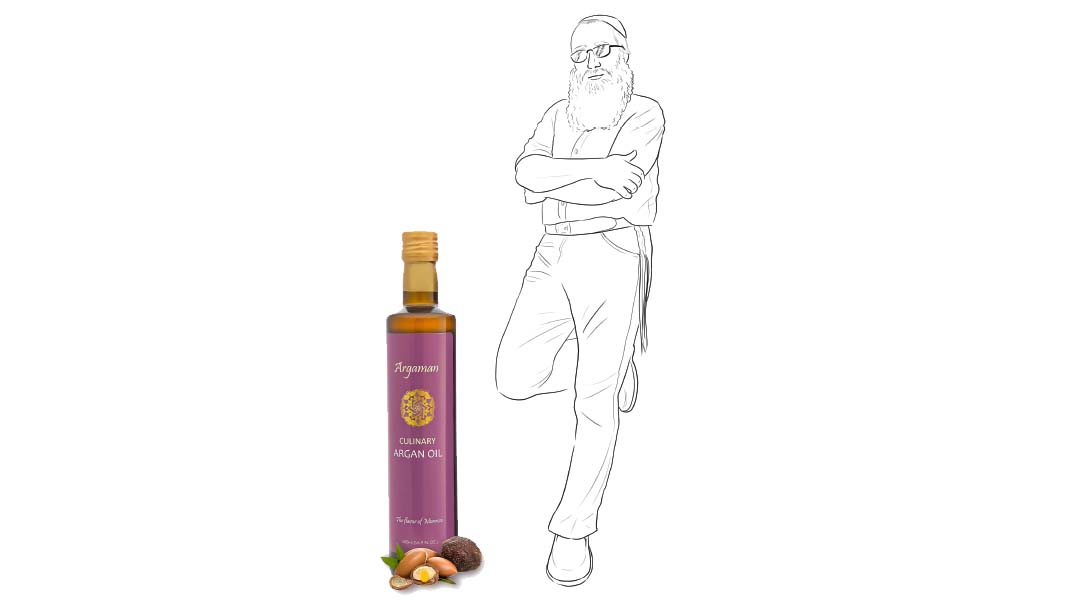
Illustration by Lea Kron
Besides Eretz Yisrael, there are very few places wanderlust pulls me to. The Swiss Alps, the canyons of Arizona, Italian pasta (and probably shoes) sound great, but Morocco? Sigh, what a dream! The culture, the sights, the food, and the Jewish history… I can literally picture myself walking through a bazaar.
Interviewing a homegrown Moroccan might not require a passport, but talking to Ariel Bensoussan, importer of Argaman Argan Oil and Ariel Prestige and Premium Extra-Virgin Olive Oils, sure felt like a mini vacation to the Orient.
Where did you get your love of food?
I grew up in Morocco in the 1960s and 70s. Life was simple and traditional and revolved largely around food. Since women rarely worked outside the home and live-in help was cheap, they lavished a lot of time on meals. We ate very well because everything was made fresh and from scratch — even the bread — and junk food didn’t exist. I didn’t cook myself, but my mother’s gourmet cooking set a high standard for me.
How did your computer job morph into this?
I’m a software engineer by trade and worked for over 30 years in the healthcare business, but by the time Covid hit I was ready for something different. Morocco had normalized trade relations with Israel, and had always had relations with the US, so I started thinking about what I could import from there. In the US, argan oil is well known for its use in beauty products and shampoos, but people don’t realize it’s a fabulous culinary oil with a lot of health benefits. I also decided to import high-end olive oil, under the names Ariel Premium and Ariel Prestige, because Morocco produces olive oil that rivals the best Italian or Greek oils.
What does argan oil actually do for people?
I know someone who claims his acne improved after he started using argan oil soap… The culinary oil is full of antioxidants and vitamins, so it’s very healthy, and it’s supposed to be good for digestive issues.
Think of it this way: Argan trees aren’t just unique, they’re kind of miraculous. They grow in super-dry regions where most vegetation can barely survive. Their deep roots manage to extract all the minerals and vitamins they need from the soil and store the precious little rainwater that falls.
People often ask me if my oil can be used for their hair or skin. The only difference between the oil for cosmetics and the culinary oil is that the latter is roasted to bring out the nutty flavor. So yes, you could probably use it, but it will have a hint of a nutty smell to it! Another point: A lot of cosmetic argan oil is mixed with other oils, and mine is 100 percent pure. Ditto for my olive oils — they’re not mixed with lower-grade oils.
How is argan oil produced, and where do you buy it from?
Argan trees only grow in Morocco, and only in a few regions. My sister and her husband still live in Marrakech, so she was a great help. I traveled to Morocco and visited production sites and made sure to choose one that already had OU certification.
As for how it’s produced, argan trees produce nuts. The fleshy outside of the nuts is partially dried and then peeled, and the kernels inside are used to produce the oil through roasting and grinding them. It’s an artisanal, labor-
intensive process.
The interesting thing is that there are a lot of goats in that region, and they love argan nuts. They’ll even climb into the trees to get at them — I took pictures of goats up in the trees, it’s a crazy sight! The region is in the desert, still very traditional, and you feel like you’ve gone back to Biblical times.
Is your family involved?
My family knew about argan oil because whenever my sister would visit, she’d bring us some. We’ve been using it for years. My sister helps me with sourcing and supervision when I’m not there, and my wife helps edit the website text.
Who develops the recipes?
I have recipes from my mother a”h and my sister, and my wife (her name is Barbara and she’s a food writer, maybe you’ve heard of her?) comes up with her own ideas.
You can sauté with argan oil, but the smoke point is too low to fry with. My wife recently made a great pasta dish with mushrooms sautéed in argan oil, mixed with pasta and Parmesan cheese. But mostly argan oil is used as a finishing oil. You drizzle it on top of grilled peppers, salads, couscous, or just dip a crusty piece of bread into it. It’s so good on its own.
How has Morocco changed since you’ve left?
I hadn’t been to Morocco in over 30 years. When I went, it was a culture shock. The country has modernized tremendously, though it still has that exotic Arabian Nights feel. The people are extremely welcoming to tourists, particularly Jews. The production site I chose was modern and spotless, yet when I arrived, they greeted me with tea in the ancient Moroccan style (poured from a silver teapot from a height of three feet into little glasses).
Fun Fact: The market for argan products keeps expanding, both for culinary and cosmetic use, but Morocco is the only place argan trees will grow. It’s like there’s a special connection between these trees and Morocco.
Ariel in 60 Seconds
Exotic beginnings: I grew up in Marrakech and Casablanca, where I attended a Jewish high school. I now live in Flatbush.
Nosh cravings: We didn’t grow up with chips in Morocco. I’ll grab a handful of nuts or a piece of whatever cake or cookies my wife made for Shabbat when I want a snack.
You probably wouldn’t guess that: I play guitar in my free time, mostly jazz, and I’ve been known to refinish pieces of furniture.
Chesed opportunity: I know so many ex-pat Moroccans who rely on visiting friends and family to bring them oil. I’m happy I can provide one available with a great hashgachah in the States.
(Originally featured in Family Table, Issue 770)
Oops! We could not locate your form.
